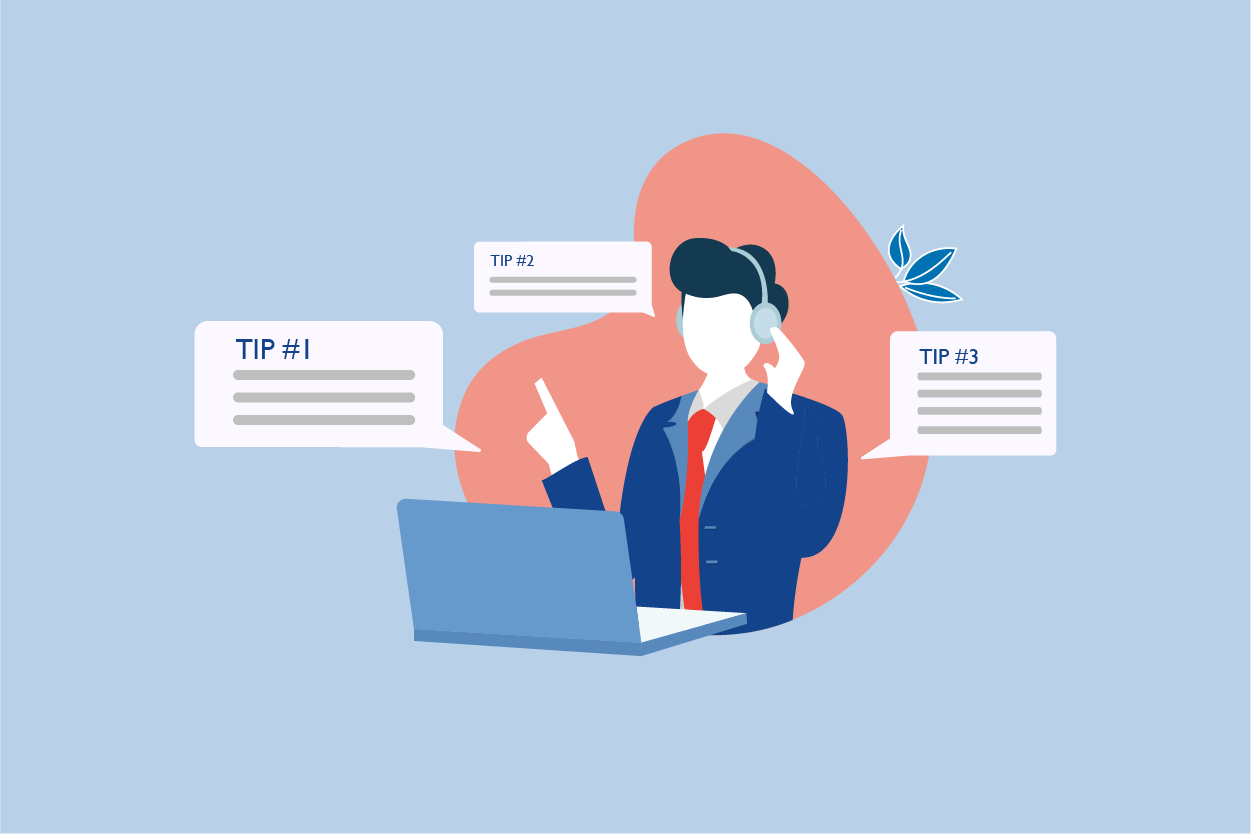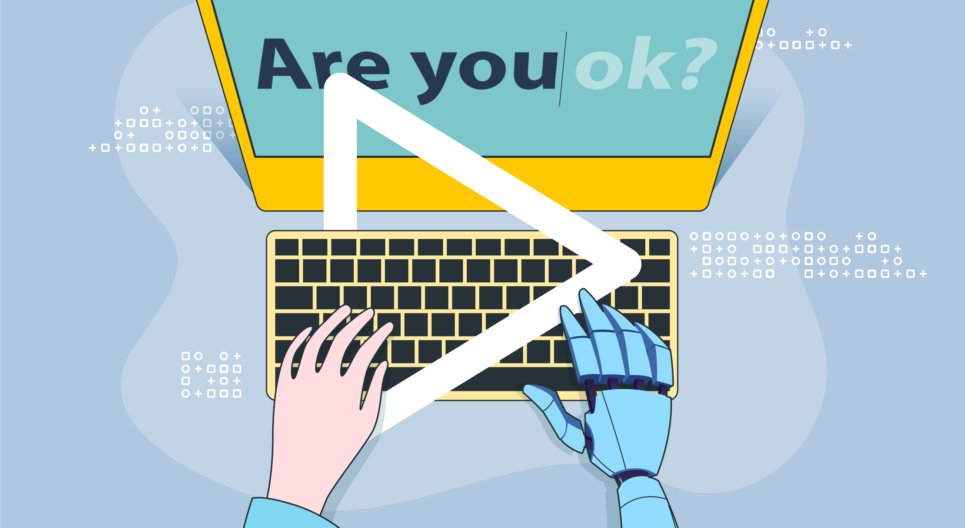

Podcast Tips: How To Create A Show People Actually Want To Listen To

A Guide from the Click2View Team
Podcast tips have exploded, evolved, and reinvented themselves, but one thing has stayed constant: creating a show people genuinely want to listen to takes more than hitting “record”.
Anyone can start a podcast.
The challenge is making one that connects, holds attention, and builds a loyal audience.
And that doesn’t come from fancy gear or celebrity guests.
It comes from fundamentals: knowing your purpose, understanding your audience, and telling a story worth hearing.
What has changed is everything around those fundamentals.
Discovery now happens through short clips.
Video matters. Editing is faster. Listeners expect tighter structure, clearer value, and less waffle.
This guide blends the timeless principles of what makes a good show with the modern tactics that help one grow today.
So whether you’re a brand, a leader, or a creator, you can build a podcast people come back to, not just stumble across once.
If you’re going to make a podcast, make it worth someone’s time. Otherwise, why make it at all?
Why Most Podcasts Fail: Podcast Tips That Go Beyond Audio Quality
Most podcasts don’t fail because the sound is bad. They fail because they don’t have a clear reason to exist.
It’s common to see brands invest in microphones, artwork, and hosting platforms, only to realise a few episodes in that the podcast feels unfocused or indistinguishable from hundreds of others.
When that happens, no amount of consistency can rescue it.
The most common reasons podcasts stall include:
- No defined audience beyond “people in our industry”
- Episodes that feel like internal conversations made public
- A lack of editorial point of view
- No clear connection between the podcast and broader business goals
A podcast needs more than topics. It needs intent.
Before recording begins, you should be able to answer one simple question: What is this podcast helping the listener do better?
When that answer is vague, the content usually is too.
Podcast Tips for B2B Brands: Why Business Podcasts Work Differently
B2B podcasts operate under very different conditions from consumer shows.
They are rarely designed to scale to massive audiences, and they don’t need to.
In most cases, success comes from depth, and not reach.
A podcast listened to by a few hundred highly relevant decision-makers can be far more valuable than one with thousands of casual listeners.
For B2B brands, podcasts often function as:
- Authority-building tools
- Trust accelerators in long sales cycles
- Relationship builders with partners, clients, or talent
- A way to articulate thinking that doesn’t fit neatly into short-form content
This also changes how success should be measured.
Instead of chasing downloads, B2B podcasts should prioritise:
- Listener retention
- Repeat audiences
- Qualitative feedback from prospects and clients
- Internal usage by sales or recruitment teams
When treated as a long-form thought-leadership asset rather than a growth hack, podcasting becomes much more sustainable.
4 Podcasting Formats to Choose From
Not all podcasts should sound the same, because not all podcasts are trying to achieve the same thing.
One of the most common mistakes creators make is choosing a format based on convenience rather than intent.
The right format depends on what you want the podcast to do for your audience and for your brand.
Common podcast formats include:
- Interview-based shows
These are ideal for borrowing credibility, learning in public, and exposing audiences to diverse perspectives. They work best when the host brings a strong editorial point of view, not when episodes become a string of unchallenged answers. - Narrative or story-led podcasts
These require more planning and editing, but they create deeper emotional engagement. They are especially effective for case studies, journeys, or lessons learned over time. - Roundtable discussions
Best suited for internal expertise and debate. These require strong moderation to avoid talking over one another or drifting into insider language. - Solo or monologue podcasts
Often the hardest to do well. They demand clarity of thinking, structure, and confidence, but they can be powerful authority-builders when executed with discipline.
The best format is the one you can sustain consistently while delivering clear value.
If the format fights your strengths, the audience will feel it.
Podcast Tips On How To Start with Purpose, Not the Microphone
A strong show begins with intent, not equipment. Before you touch a microphone, you need to know:
What do you want to say? And why should anyone care?
This clarity anchors the entire podcast. Without it, episodes start drifting, repeating, or blending together.
Questions that sharpen your purpose
- What change or insight do you want listeners to walk away with?
- Which topics can you explore deeply and consistently?
- What unique point of view do you bring?
- Why are you the right person to host this?
A podcast without purpose is just recorded noise.
A podcast with purpose becomes a habit.
Podcast Tips for Knowing Exactly Who You’re Talking To
The best podcasts feel like they’re speaking directly to one person, not a general audience. That intimacy comes from knowing exactly who your audience is and what they need.
Modern podcasts thrive in niches
The most successful shows today focus on specific communities:
- Founders scaling their first business
- Leaders navigating change
- Amateur filmmakers
- Parents learning new frameworks
- Tech teams, designers, coaches, creatives
- Incredibly specific hobbies and subcultures
The more precise the audience, the more loyal the listener.
Treat Podcasting Like Storytelling, Not A Recording
Great podcasts aren’t accidents. They’re built on storytelling fundamentals: characters, tension, decisions, and transformation.
Brands aren’t the hero, the listener is
A common mistake brands make is positioning themselves as the “hero” of the narrative.
But audiences connect with the hero who is learning, and not the hero who has “already won.”
This makes the brand the guide, the mentor: Obi-Wan, not Luke.
When the listener is the hero, your stories resonate more deeply.
5 Podcast Tips for Structuring Episodes People Finish
Most listeners decide whether to continue a podcast within the first few minutes.
That means structure matters more than length. Even short episodes can feel long if they lack direction, while longer episodes can feel effortless if they move with purpose.
A simple structure that works across most formats includes:
- A clear opening
Tell listeners what they’ll gain from the episode and why it matters now. Avoid long intros that delay value. - Context and framing
Briefly set up the problem, question, or tension the episode will explore. - The core conversation or story
This is where depth lives. Keep the focus tight and return to the central idea whenever the discussion drifts. - Moments of reflection or synthesis
Pause to interpret what was said. Help listeners connect insights to their own context. - A deliberate close
End with a takeaway, question, or action, and not a fade-out.
When listeners feel guided, they stay. When they feel lost, they leave.
In Podcasting, Consistency Is More Important Than Chasing Virality
Publishing consistently is the secret to long-term success, because the pursuit of viral moments can be endless and unpredictable.
Podcasts are habit-driven. People listen:
- While commuting
- When walking
- When they’re cooking
- During a workout
- As they clean
If you publish predictably, you become part of their rhythm.
If you publish sporadically, they’ll drift to someone who doesn’t disappear.
Podcast Tips for Getting Audio Quality Right
Good audio doesn’t require a studio. It requires clarity and intentionality.
People can forgive filler words or small imperfections, but they won’t forgive:
- Distorted audio
- Loud background hum
- Echoey rooms
- Inconsistent volume
- Interruptions
You need:
- A decent microphone
- A quiet space
- Basic acoustic treatment
- Solid recording habits
Competent always beats complicated.
Podcast Tips for Recording Remotely Without Sacrificing Quality
Remote podcasting is now the norm, not the exception.
While it offers convenience and flexibility, it also introduces challenges that can undermine audio quality and conversational flow if they’re not addressed deliberately.
Common remote recording issues include:
- Internet instability
- Audio lag or echo
- Inconsistent microphone quality between speakers
- Guests unfamiliar with recording best practices
To minimise these risks:
- Ask guests to use headphones to avoid feedback
- Encourage recording in a quiet, enclosed space
- Provide simple pre-recording instructions
- Use platforms that record separate audio tracks for each speaker
Remote recording works best when expectations are set clearly. A few minutes of preparation can save hours of editing later.
Editing Is Where Podcasts Become Listen-able
Recording captures the conversation. Editing shapes the experience.
This is where many podcasts underestimate the work involved.
Editing is not just about removing mistakes or background noise.
It’s about tightening structure, improving pacing, and removing friction for the listener.
Effective podcast editing typically involves:
- Cutting tangents that don’t serve the episode’s core idea
- Removing repetition and verbal clutter
- Adjusting pacing so the conversation feels intentional
- Ensuring clarity when speakers talk over one another
Over-editing can strip a podcast of its personality, but under-editing often leaves listeners doing too much work.
The goal is not perfection, but flow.
If listeners have to concentrate to follow the conversation, then they are unlikely to finish the episode.
Podcast Tips for Video-First Podcasting in a Clips-Driven World
We now live in a video-first podcast world.
Listeners often watch podcasts, even if the content is audio-led.
Why video matters
- Better discovery
- Video is favoured by most algorithms, making your content easier to surface on social platforms and search feeds.
- Higher engagement
- People naturally spend most of their time watching movement and expression, so video holds attention longer than static formats.
- Stronger credibility
- Seeing real people and watching their face, voice, and body language in motion builds trust faster than text or images alone
- More clip opportunities
- One shoot generates multiple bite-sized moments for social media, giving your content a longer lifespan and wider reach.
You don’t need a TV studio.
You need decent lighting, good framing, and a host who knows how to be present on camera.
Think in Clips, Not Episodes
This is the biggest shift in podcast growth.
Shows now grow because of short clips, and not because someone browsed a podcast directory.
A single 12–30 second clip can introduce your show to thousands of new listeners.
Design your episode around clip-worthy moments
Ask your guests things like:
- “Can you give me a real example of that?”
- “What was the turning point?”
- “What’s the mistake people always make?”
- “Tell me the moment everything changed.”
Clarity creates clips.
Clips create growth.
Podcast Tips for Designing Episodes That Are Easy to Repurpose
Modern podcasts are not just audio experiences. They are content engines.
This means episodes should be designed with repurposing in mind from the start, and not treated as something to “cut up later.”
This starts with how conversations are guided:
- Ask for concrete examples
- Encourage specific stories rather than abstract answers
- Pause between thoughts to create clean clip points
- Repeat key phrases naturally for emphasis
When you plan for reuse, every episode produces more value with less effort.
How to Make Your Podcast Discoverable
Podcast SEO is no longer optional.
Platforms index:
- Titles
- Descriptions
- Transcripts
- Chapters
- Captions
So skip vague episode names and use ones that clearly communicate value.
Better titles look like this:
- “How Leaders Build Teams That Scale”
- “The Mindset Shift That Solves Most Creative Blocks”
- “Storytelling Mistakes Brands Keep Making, and How to Fix Them”
Transcripts also improve searchability and make repurposing effortless.
Use AI to Speed Up The Entire Podcasting workflow
AI has transformed podcast production.
Not the creative part, the time-consuming part.
AI can help with:
- Audio cleanup
- Removing filler words
- Transcribing
- Cutting clips
- Generating show notes
- Writing summaries
- Captioning video
- Identifying highlight moments
This frees up your time to focus on the actual content and not worry about the admin.
Focus on distribution, not just posting
Publishing and promoting are very different things.
Smart podcasters distribute episodes deliberately:
- Short clips on social
- Full episodes on YouTube
- Newsletters
- LinkedIn carousels
- Blog repurposing
- Collaborations with guests
- Community shoutouts
- Cross-promotions
The episode is the anchor. Distribution is the engine.
Using Guest Networks to Extend Reach Naturally
Guests are not just contributors. They are distribution partners.
When guests feel well-prepared and well-represented, they are far more likely to share episodes with their own networks.
Ways to make sharing easy:
- Provide ready-made clips
- Share suggested captions
- Tag guests clearly and consistently
- Thank them publicly after release
This approach feels collaborative rather than transactional and helps your podcast reach audiences who are already primed to care.
Tell Stories That Matter Without Turning Them Into Ads
People tune out when a podcast feels like a commercial.
But they tune in when a podcast feels like a story.
Your show should:
- Explore real challenges
- Offer clarity
- Share meaningful examples
- Deliver value
- Give listeners a reason to return
Trust is earned through storytelling, not slogans.
Podcast Tips on How to Use Leader Voices Smartly
When leaders host or feature in podcasts, it humanises the brand.
An authentic, thoughtful leader can reinforce your company’s values and personality.
But it must be authentic.
A reluctant or overly scripted leader won’t land well.
Choose someone who knows the subject, enjoys the conversation, and can hold attention naturally.
Start Podcasting Before You Feel “Ready”
It takes time to find your rhythm.
Then episodes to build confidence.
And finally, a lot of practice to become natural.
Your early episodes may feel rough.
That’s normal.
Don’t wait for perfection.
Start, refine, improve.
Track the metrics that actually matter
Downloads matter far less than:
- Retention
- Episode completion
- Average watch time
- Comments and feedback
- Clip performance
- Repeat listeners
- Message consistency
Depth matters more than breadth.
Setting Realistic Expectations for Growth
Podcast growth is rarely linear.
It’s important to separate:
- Short-term performance
- Long-term value
Podcasts build familiarity through repetition. The more often your voice appears in someone’s life, the more trusted it becomes.
Patience is not passive. It’s a strategic commitment.
Podcast Tips on How to Make Content More Accessible
Accessible podcasts reach more people and rank better.
This means:
- Transcripts
- Captions
- Clear chapter markers
- Clean audio
- Accessible language
- Multilingual subtitles if needed
Accessibility is good practice and good strategy.
Podcast Tips for A Modern Production Workflow (Simple + Effective)
- Clarify purpose and audience
- Plan episodes with clip moments in mind
- Record audio + video
- Use AI for editing and cleanup
- Extract short clips
- Publish full video and audio
- Upload transcripts + metadata
- Distribute widely
- Repurpose into written and visual formats
- Review retention + refine
That’s the modern cycle: efficient and scalable.
Podcast Tips At A Glance
- Quality > equipment
- Consistency > creativity
- Clarity > cleverness
- Story > statistics
- Audience > ego
Conclusion
A great podcast isn’t about the microphone, the set, or how “professional” it looks.
It’s about saying something worth hearing clearly, consistently, and in a way that respects your listener’s time.
Start with purpose. Show up regularly.
Tell real stories. Make it meaningful.
Do that, and you’ll build a show people return to not out of habit, but because it genuinely gives them something valuable.
FAQs
How long should a podcast episode be?
As long as it stays engaging. Don’t stretch or pad.
Do I need video?
If you want growth and discoverability: yes.
What equipment do I need?
A decent mic, quiet room, and simple lighting setup.
How do podcasts grow today?
Through clips, SEO, collaboration, and consistent distribution.
Should brands start podcasts?
Yes, but only if there’s a clear purpose and audience.
Can AI help?
Absolutely. It speeds up everything except the storytelling.
How do I measure success?
Focus on retention, completion, and engagement, not just listen counts.






